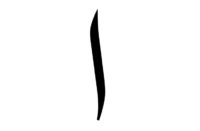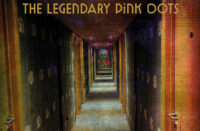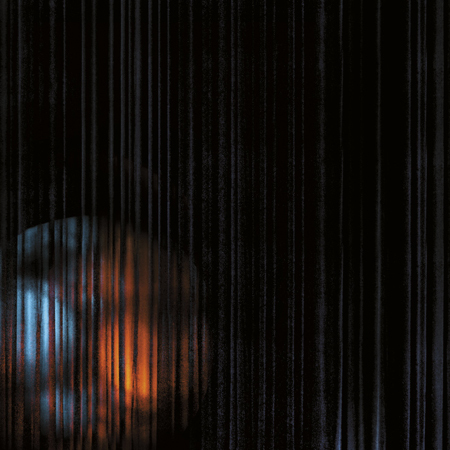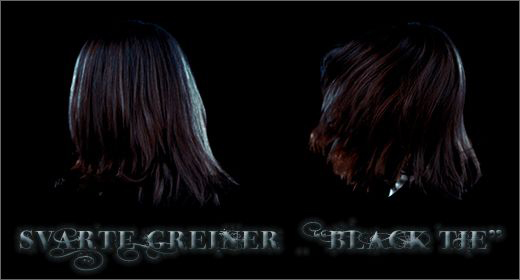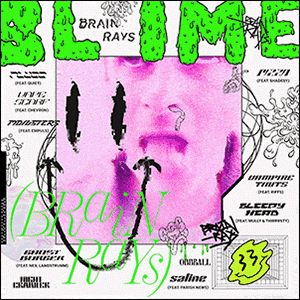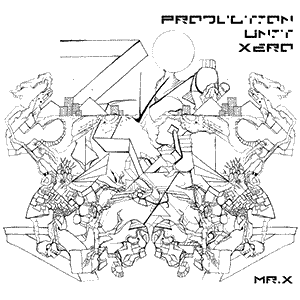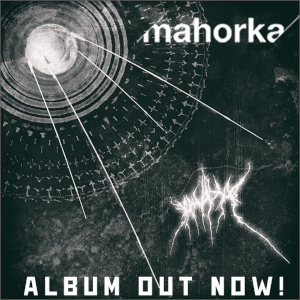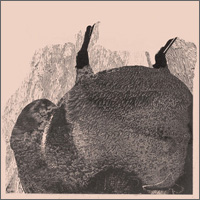 (11.10.06) I don’t think it would be doing a disservice to Type Records to describe them as something of an art-house label. None of the negative aspects of that association have ever really applied: there’s no snobbishness, no precious or esoteric presumption. That said, their catalogue is often more abstract than literal, atmospheric gems like Le Fumeur de Ciel, It’s all Just Another Aspect of Mannerism or Sentimentalist all conjuring atmospheres and places without the use of field recordings or samples. The arrival of Halloween, however, has seen Type transform into a purveyor of sonic terror and a temporary change in their palette. Xela’s blood-soaked, zombie-ridden nautical nightmare The Dead Sea and his limited Halloween 7″ are both seasonally apt, as is their latest release, Knive.
(11.10.06) I don’t think it would be doing a disservice to Type Records to describe them as something of an art-house label. None of the negative aspects of that association have ever really applied: there’s no snobbishness, no precious or esoteric presumption. That said, their catalogue is often more abstract than literal, atmospheric gems like Le Fumeur de Ciel, It’s all Just Another Aspect of Mannerism or Sentimentalist all conjuring atmospheres and places without the use of field recordings or samples. The arrival of Halloween, however, has seen Type transform into a purveyor of sonic terror and a temporary change in their palette. Xela’s blood-soaked, zombie-ridden nautical nightmare The Dead Sea and his limited Halloween 7″ are both seasonally apt, as is their latest release, Knive.
Composed by Svarte Greiner – better known to most as Erik Skodvin, one half of the masters of brooding and expansive electronic music Deaf Center – Knive takes Type’s art-house leanings to a logical extreme by creating one of the most visual albums the label has yet released. Deaf Center’s Pale Ravine already augured its arrival with the inclusion of the tense and claustrophobic “Loft” that, in this context, serves as a trailer of sorts for the unseen terrors that await the listener on Knive. That track was softened by Deaf Center’s signature waves of warm orchestral majesty, but Skodvin has pushed the envelope much further on Knive.
“The boat was my friend” opens the album with stabs of distorted yet still sun-warmed guitar and nervous cello. We are still at the edge of the horror that will follow: crows caw in the distance, strange clacks and vibrations are audible from every direction, and the deranged and wordless darkling song of an unseen female (voiced by Kristin Evensen Giaever) soon joins them. Knive will never sound this familiar or safe again as “Ocean out of wood” continues the journey into the thick of a murky, dead forest, all trace of colour now gone. Dry, strained and creaking string instruments grind across the senses and the shadowy figure that watches us emits disturbing, echoed cries.
It rapidly becomes obvious that Skodvin is somewhat over-fond of the sounds it is possible to elicit from the brittle branches of trees, or indeed bits of wood generally, as these sounds become an almost tiresomely prominent feature of some of the tracks on Knive. “My Feet, Over There” slows the pace of the album far too early, and some may struggle to complete it unless it is skipped. Nevertheless, it is certainly remarkable. All that can be heard is the phasing whine of some detuned electronic device and horrendous, hollow cracking and clunking, as if something were being slowly pulled apart.
One benefit that these woody intermissions do have, however, is that they emphasise tracks that are clearly meant to represent “Knive’s” key events. “Easy on the Bones” is undoubtedly one of the most gruesomely vivid tracks, and the title is not necessary to discern the meaning of the muted but alarmingly clear sounds of sawing that form the sadistic rhythm of the piece. Like “Loft” on Pale Ravine, “Easy on the bones” sees us senselessly but helplessly exploring dark places we have no right to be.
“An Ordinary Hike” leads us to what is perhaps the centrepiece of Knive: “The Black Dress,” a nine-minute piece that also represents one of the albums most overtly musical moments. Vinyl crackle is much in evidence as a sawing and sombre church organ chord sequence repeats over and over. Some time into this funereal dirge, the sounds of footsteps can be heard as someone enters a decaying and abandoned chapel. The regular ringing of tiny wind chimes ushers in another sequence of cold, sepulchral organ chords before returning to the original refrain.
The brief but powerful “Ulsokk” opens with the chitinous scratching, clawing and squelching sounds of filthy rats and swarming insects as, like a spectre, the voice of Knive’s tainted siren seeps through the rotting walls, intoning the word Ulsokk over and over: lonely, damned, insane. And without a moment to recover, the hollow, almost tribal clunking percussion of “The Dinner Table” kicks in with a jolt that sends shivers up the spine. The rhythm is unrelenting, like some twisted and bestial ceremony, and the clatter of rusting, jagged metallic objects join the petrifying wails and moans of two writhing horrors.
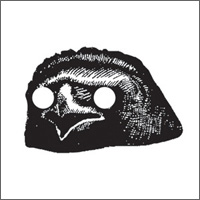
Whoever it was we the listener were following into the woods is long dead, and we are forced to listen to the sounds of a makeshift grave being filled in. As if all this weren’t enough, Greiner adds the brilliant framing touch to the grim tale, as a plane can clearly be heard passing overhead, an ordinary event that grounds the horrific proceedings we have witnessed firmly in reality as the world carries on unaware. The grim double meaning that the title may imply, as a victim is laid to rest shortly before the murderer succumbs quite happily to tiredness and falls asleep in that exact spot is utterly spine chilling. The wind whips through the trees blowing clouds of rotting autumn leaves with it as a solemn, operatic female vocal, majestic pads and a tragic, haunted, abstract exhalation mark the passing of an innocent soul. It is one of the most chillingly beautiful moments on Knive.
Roll the credits.
Where Xela’s The Dead Sea was horrific in Type’s quintessentially abstract way, Knive is unapologetically visual and therefore strangely more approachable, odd considering its macabre content. Knive is a surreal and terrifying “audio movie” that stirs the senses in disturbing and unwanted ways. It is the musical incarnation of your most twisted and surreal nightmares. You have been warned.
Knive is out now on Type.
Also available is Raggsokk, another entry in the T7PE series of 7″ vinyl single releases, this one limited to 300 hand-stamped copies. It features two additional tracks from the Knive sessions that are not included on either formats of the album and is a worthwhile addition to Svarte Greiner’s audio horror movie.






